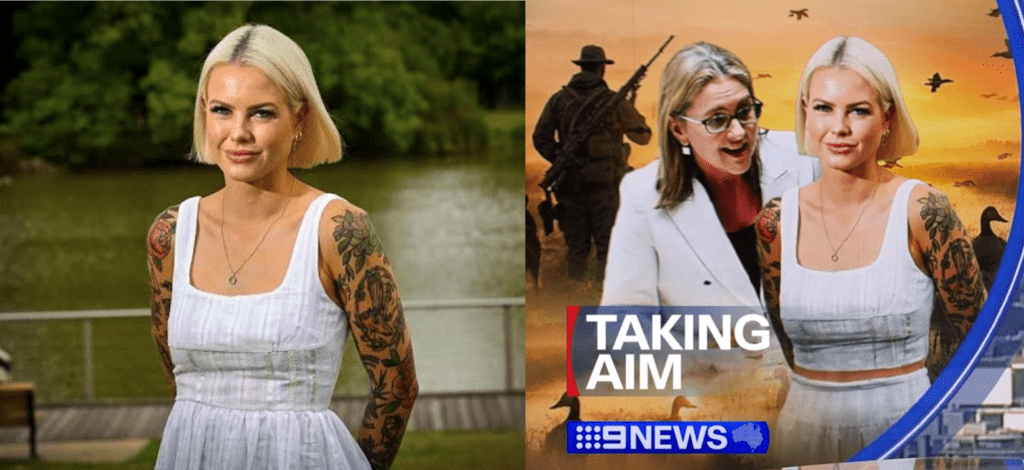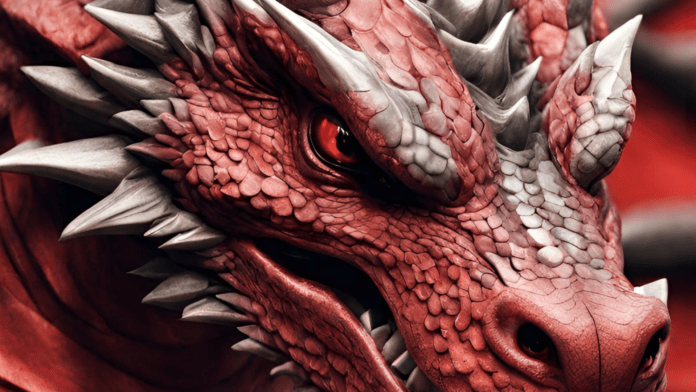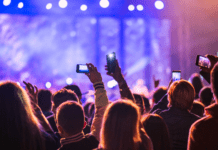You’d have to have been living off the grid to not be aware of the Georgie Purcell photoshop scandal.
To recap, in early February, Animal Justice Party MP Georgie Purcell drew attention to how Nine News had edited her photo to enlarge her breasts and transform her dress into a crop top and skirt.
“I endured a lot yesterday. But having my body and outfit photoshopped by a media outlet was not on my bingo card. Note the enlarged boobs and outfit made to be more revealing. Can’t imagine this happening to a male MP. What gives?” – Georgie Purcell, Twitter

Nine came under scathing attack – firstly for doctoring the image, and soon after for blaming artificial intelligence (AI).
“As is common practice, the image was resized to fit our specs. During that process, the automation by Photoshop created an image that was not consistent with the original.” – Nine News
Here’s the thing: AI is incredible. On command, it can generate just about any output—poetry, code, images, prose… But the keywords are ‘on command’. Generative AI models are guided by humans. It’s the prompts—the information, sentences, and questions—which we humans input that determine the machine understanding and influence the quality of the outputs.
Eventually—after the incident had gone global and been reported by The Washington Post and BBC, among many others—Nine acknowledged there was human intervention… in the decision to use the image.
Too little, too late.
AI image generators are a business breakthrough
Many businesses probably view AI as technology which is reserved for large corporates (and media conglomerates).
It’s not.
The tools are openly available and accessible for all to use at no or low cost.
Until now, most of the focus has been on text based generative AI – tools like ChatGPT which I admit to using every other day.
Recently, for example, while writing about renewable energy, I asked ChatGPT to give me a relatable example to help me contextualise 3.2 megawatts of power. Fun Fact: 3.2 megawatts could power three of Taylor Swift’s stadium shows.
We’re now starting to learn more about AI image generators like the technology used by Nine News. These tools are game changers.
Let me illustrate.
Because I’m not a trained designer, I’m a fan of the Australian online design and publishing tool called Canva.
Recently Canva added an AI image generator to its toolbox so I was keen to test it out.
Being Year of the Dragon, I decided to use that magical legendary creature as my inspiration. And, as I’m on the NSW board of the International Association of Business Communicators, my default mindset at the time was ‘corporate communications’.
Before I begin, remember, prompts are my inputs – my instructions.
Pay attention to how the image generated changes as my prompts become more specific (and more ridiculous).
Prompt #1: Give me an image of a dragon presenting to a large audience of people in suits.

Prompt #2: Give me a 3-D image of a dragon presenting to an audience of people in suits.

Prompt #3: I’d like an image, in the style of Renoir, of a dragon speaking into a microphone before a captivated audience.

Prompt #4: Give me a childlike drawing of a dragon addressing a board of directors.

Prompt #5: Give me an image of Khaleesi* with one of her dragons, addressing an audience of backpackers on Sydney Harbour.
* In the HBO hit series Game of Thrones, the character of Khaleesi is referred to as the Mother of Dragons.

Prompt #6: Give me an image of dragon appearing as a guest on the Australian television show Q&A.

Each of these images was generated within around ten seconds.
How can businesses benefit from AI-generated images?
My example was fun but how relevant is this to business?
Hugely.
Whether your organisation is micro, medium, or major, there will be countless occasions upon which you would benefit from an image to accompany some text.
Advertisements, promotional materials, flyers, posters, newsletters, blogs…
All of these examples of marketing collateral or communications will be more impactful and more engaging with the inclusion of imagery.
Finding suitable images (low or no cost) that are fresh, relevant, and on-brand can be both difficult and time consuming.
With generative AI, the only thing holding you back is your imagination.






